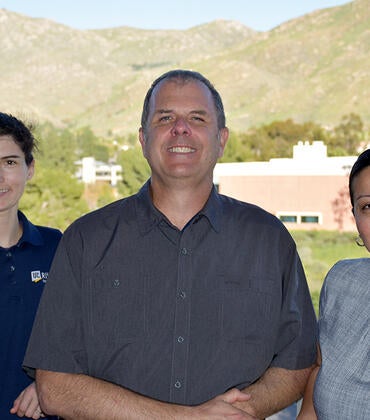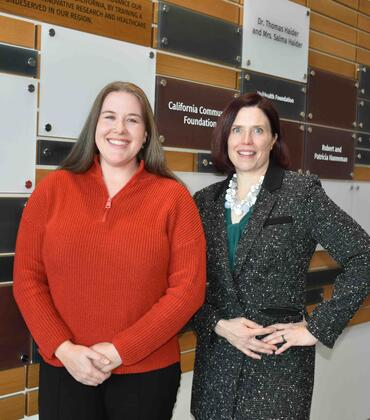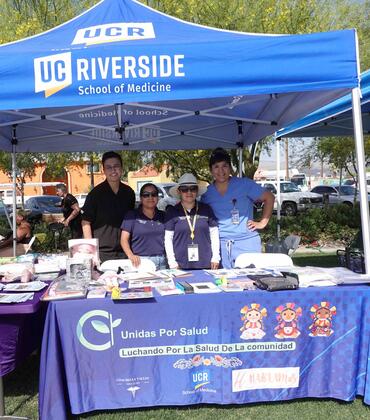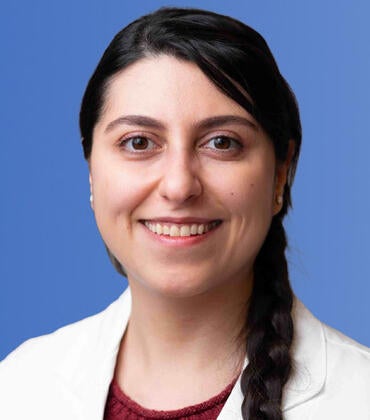
For UCR Health physician Janet Cruz, MD, the best part about working with patients is conducting their postoperative visits, when she can compare their condition before and after surgery and see their reactions. For one patient with advanced endometriosis, “the before and after was night and day,” Cruz said. Her surgery involved removing pelvic adhesions and endometriosis, and the patient’s response to seeing the postoperative photos stood out to Cruz. “Her reaction was, ‘Oh my god, that was my uterus, no wonder I had so much pain,’” Cruz recalled. The fact that the patient’s pain improved after surgery, Cruz said, was “very rewarding.”
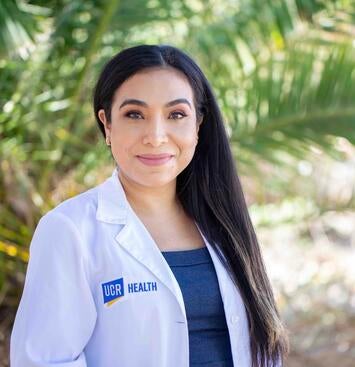
Cruz entered the obstetrics and gynecology (OB/GYN) field out of a desire to help an underserved and often undertreated population: namely, women. A research review published in Pain Research and Management found that while healthcare professionals and researchers often view men as “stoic” and “tolerating pain,” they perceive women as “sensitive to pain,” “hysterical,” and “emotional.” The study also noted that women who experience pain yet have “medically unexplained” conditions are often treated as though they don’t have a health condition at all.
Further research from 2020 indicated that stereotypes and perceptions about women’s pain may lead to them receiving lower quality of care compared to men.
“Most of the time that the patients come in, I know why they're there, and I think the majority of them just want to be heard,” said Cruz, who is currently accepting new patients. She explained that she does more listening than talking in her appointments, and often assures patients that she believes them. “I say that for a lot of consultations, and I think that those few phrases really help patients understand that I'm here to help, and I believe they are in pain,” she said.
Individualized care for unique situations
Cruz, who completed the Minimally Invasive Gynecological Surgical Fellowship (MIGS) at the UCR SOM, initially planned to return home to Chicago to treat patients. However, she said that UCR’s supportive environment convinced her to remain at UCR Health, where she became an attending physician in 2023. She said she enjoys finding individualized solutions for each patient, some of whom may have dealt with their condition for years before receiving the treatment they needed. “Some patients want different goals out of surgery,” she explained. “It’s about listening, creating an individualized care plan, and seeing how you could best meet the patient in the middle to try to optimize her care and also improve her quality of life.”
“Dr. Cruz’s work ethic and her dedication to putting the needs of patients first are just a few of the ways her work contributes to the mission of UCR,” said Sarah Simko, MD, a minimally invasive gynecologic fellow at UCR who works with Cruz. “She understands the obstacles that many patients have faced and works to ensure that they feel heard when they visit UCR Women’s Health Clinic.”
Cruz performed a hysterectomy for one patient who had been experiencing pain and heavy bleeding for years. Other physicians the patient saw either didn’t offer her a hysterectomy or told her she wasn’t ready for one, forcing her to live with the pain until she met Cruz. “She was very appreciative and thankful that she found us and that we were able to take care of her,” said Cruz. “These patients are sometimes left wondering, why wasn't I heard? Or I wish I would have found you sooner, and it could have prevented so much agony.”
Another patient Cruz worked with was also in pain, but was trying to conceive. Cruz performed an endometriosis excision surgery, removing cysts and restoring anatomy function where possible to damaged parts of her reproductive system. A few months after the surgery, the patient messaged Cruz that she was pregnant. “She was very happy and appreciative that we were able to take care of her and actually accomplish her goal of keeping her uterus and having a family,” said Cruz, who recently met the patient’s new baby.
Choosing the right tools to aid patients
Cruz is also conducting research focused on helping patients. Noticing that she repeats the same information and often receives similar questions during preoperative visits, Cruz decided to create an educational video to supplement the in-person visit while answering patients’ questions in an easier-to-absorb format.
With traditional preoperative visits, Cruz said, most patients forget the information they received. “By the time you’re home, you’ve thought of more questions--how am I supposed to take the pain medication again? How many days off do I need?” Cruz explained.
The video, which Cruz plans to test via randomized groups of patients, will answer common questions and allow patients to replay information as needed. Her research will investigate the video’s effectiveness, compared to in-person visits, on measures including increasing patient satisfaction and decreasing their anxiety before surgery. “I thought it would be a win-win situation, where we would improve our clinic flow and become more efficient while also helping give patients more satisfaction and easing their anxiety,” Cruz said.
Cruz added that she thinks the video could particularly benefit patients in the Riverside area because, if successful, she could also create a Spanish version. “Since we are in the Inland Empire, some of the patients that we see are Spanish speaking,” she said. “Having language-concordant care is really important.”
Cruz is also researching the effectiveness of a device that may help counter the ongoing opioid epidemic. The On-Q pump provides small amounts of an anesthetic solution after surgery to take the place of prescription narcotics that can lead to an opioid addiction. Deaths from the narcotic fentanyl rose from 28 in 2017 to 406 in 2021 in Riverside, according to the County of Riverside. Seeing patients addicted to opioids in the local area, Cruz said, spurred her interest in evaluating the device.
Improving efficiency and effectiveness are also important goals for Cruz for training new surgeons. As a MIGS fellow at UCR, she advocated for the program to obtain a laparoscopic trainer to allow fellows to practice surgical skills in a low stress, low stakes environment. The program now has two. “Now we have the tools we need to help the fellows practice,” she said. “I’m finally seeing hard work and persistence pay off.”
Encouraging others to listen
Out of all the potential ways to help patients, though, one of the most essential for Cruz is simply listening to them–and she encourages other physicians to do the same. “People are coming to see a physician not because they’re feeling great, but because there’s a problem or an issue that is worrying them in their body and they are seeking guidance,” Cruz explained. With that understanding in mind, she said physicians should focus on listening and finding a solution together. “I think those two things in general can help…diagnose chronic disorders a lot earlier than just telling them, ‘Your symptoms are normal, it's part of being a woman,’” Cruz said. “I think we can't keep using that excuse anymore, and I think now women are catching on that pain is not normal.”
Cruz added that her own patients, at least, can feel confident about being heard. “I will listen, and I will give you my honest opinion on what we could do to try to meet your goals,” she said. “A lot of patients are happy that someone is listening,” she added. “A lot of times patients become tearful…because they're relieved that they finally feel heard and have found a surgeon that can take care of them.”
